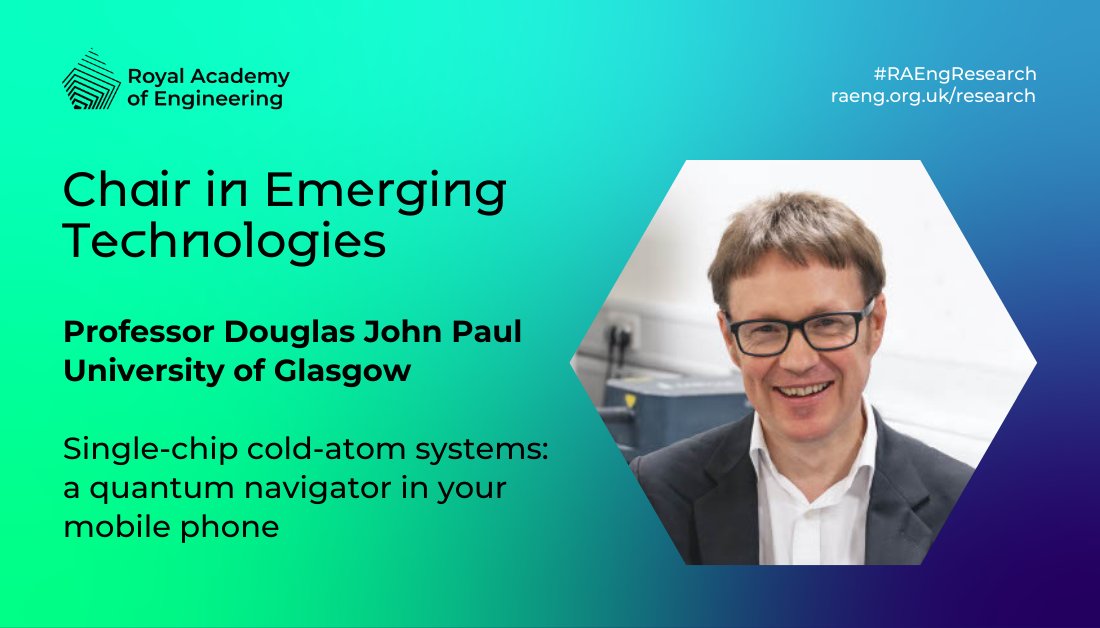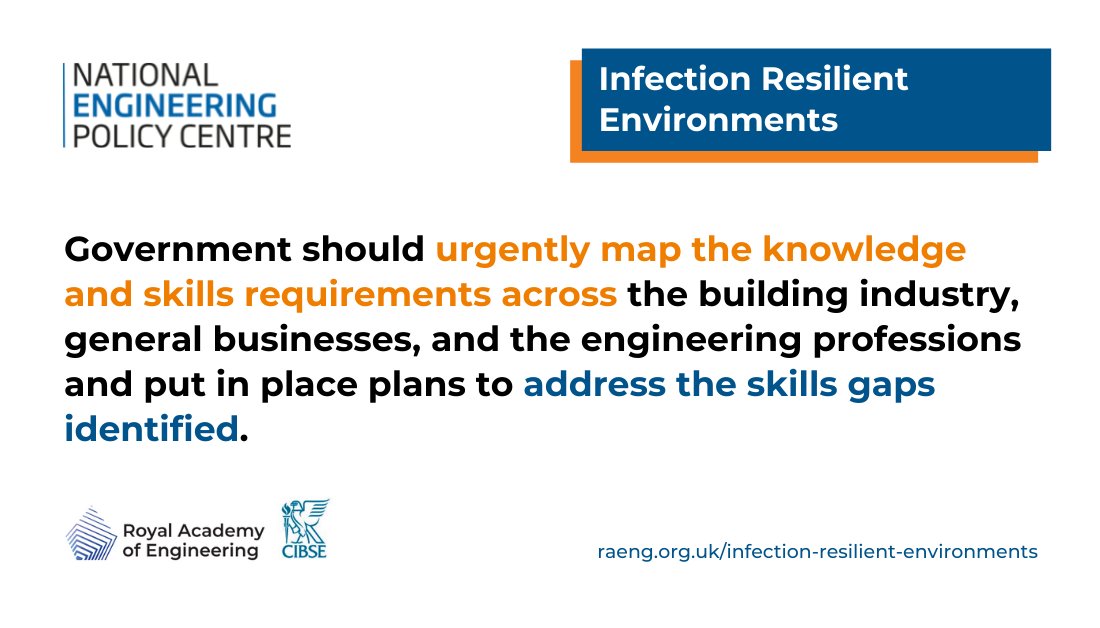We are delighted to reveal eight new global visionaries who will be awarded funding from the Academy's #RAEngResearch Chairs in Emerging Technologies scheme. A total of £22 million will be allocated to support research that could have global benefits: raeng.org.uk/ciet-2020 

Professor Stephen Beeby will be looking into developing electronic textiles that incorporate flexible circuit technologies, sensors, and energy harvesting/storage functionality, for use with wearable applications and more: raeng.org.uk/ciet-2020 #RAEngResearch 

Professor Emile Greenhalgh will focus on developing structural power composites, an area which is expected to have a huge impact on the aerospace and automotive industry, by increasing fuel efficiency and a reducing global emissions: raeng.org.uk/ciet-2020 #RAEngResearch 

Professor Jonathan Hirst's research will develop machine learning techniques to help chemical engineers and chemists make their manufacturing processes more sustainable: raeng.org.uk/ciet-2020 #RAEngResearch 

Professor Martin Kuball will look into developing a new class of semiconductor power electronic devices. His research will be key to transforming a wide range of real-life applications - from electric vehicle chargers to smart grids: raeng.org.uk/ciet-2020 #RAEngResearch 

Professor Bruno Merk aims to develop advanced nuclear technology to turn nuclear waste into a fuel for future nuclear reactors. This could significantly reduce the amount of nuclear waste and create a net-zero energy resource for the future: raeng.org.uk/ciet-2020 #RAEngResearch 

Professor Douglas Paul aims to develop single silicon chips with integrated navigation technology that have the potential to enable resilient position, navigation and timing systems for all forms of transport without relying on satellites: raeng.org.uk/ciet-2020 #RAEngResearch 

Professor William Sloan research will look into harnessing the bioprocessing power of microorganisms to deliver clean drinking water and treat wastewater in rural communities using low-energy, sustainable, off-grid technologies: raeng.org.uk/ciet-2020 #RAEngResearch 

Professor Molly Stevens' research aims to develop next-generation biosensing technology platforms. Her research will enable applications in point-of-care diagnostics, disease profiling and monitoring of biotech processes: raeng.org.uk/ciet-2020 #RAEngResearch 

• • •
Missing some Tweet in this thread? You can try to
force a refresh
























